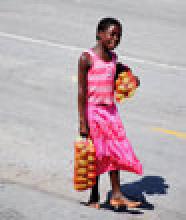As Namibia marks two decades of independence on 21 March, Henning Melber takes stock of what liberation has meant for the country’s socio-economic and political landscape. Namibia is still one of the most unequal societies in the world, writes Melber, and there’s little evidence of strong political will to improve the living standards of formerly marginalised people. With solidarity ‘only visible among the haves, aiming to protect their old and new privileges’, says Melber, not everyone will ...read more
As Namibia marks two decades of independence on 21 March, Henning Melber takes stock of what liberation has meant for the country’s socio-economic and political landscape. Namibia is still one of the most unequal societies in the world, writes Melber, and there’s little evidence of strong political will to improve the living standards of formerly marginalised people. With solidarity ‘only visible among the haves, aiming to protect their old and new privileges’, says Melber, not everyone will have reasons to celebrate this Sunday.











































